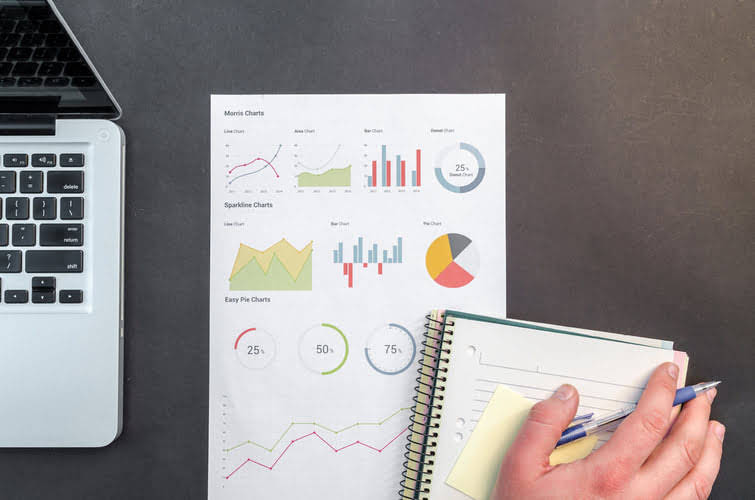
As mentioned above, you can manage bookkeeping yourself using software like QuickBooks. QuickBooks even has a version for freelancers and self-employed individuals. Let’s review some tasks involved in bookkeeping, especially as they relate to your business’s day-to-day operations. In this article, we’ll go over the fundamentals of small business bookkeeping bookkeeping, as well as what you’ll need to implement a bookkeeping system for your business. As you establish the financial side of your business, here are five best practices to keep in mind when creating a functional bookkeeping system. It’s important to send invoices right after delivering the goods or performing services.
Business credit is particularly useful if you have major expenses or investments coming up and can allow you to apply for a line of credit as an alternative to seeking out a traditional business loan. Additionally, opening business accounts will allow you to build and develop business credit, which is similar to but separate from your personal credit history and score. Your business credit score can get you lower rates on your insurance policies and increase your borrowing potential.

Investing the time to attend a conference will give you those continuing education credits you need to keep your bookkeeper or CPA certification. It’ll also enable you to learn what the hottest trends in the industry are and what’s becoming obsolete. A great conference to attend is QuickBooks Connect, which is hosted by Intuit. Another is to rent a UPS mailbox instead, and the UPS Store will give you a real street address to use. A benefit to using a UPS mailbox is some merchants won’t deliver to P.O. Getting a unique phone number for your business is incredibly easy and often free.
You can connect our accounting software to your business bank account and import your transactions, reducing the amount of manual work you have to do and lowering the risk of making human mistakes. Before you take on any small-business bookkeeping tasks, you must decide whether a single- or double-entry accounting system is a better fit. The entry system you choose impacts how you manage your finances and how your bookkeeping processes will work.
As long as you automate tasks and pick the right bookkeeping system for your specific needs, you’ll have an easy time implementing all the advice above. Again, if you outsource payroll, it’s wise to have a separate business account you’ll dedicate only to payroll. This way, the payroll provider won’t have access to your primary account. Plus, you can ensure your payroll account has enough money even if the primary account suffers.
Xero’s online accounting software is designed to make life easier for small businesses – anywhere, any time. The key to time management is creating an effortless bookkeeping accounting system. Revenue is all the income a business receives in selling its products or services. Costs, also known as the cost of goods sold, are all the money a business spends to buy or manufacture the goods or services it sells to its customers. If you use cash accounting, you record your transaction when cash changes hands. The financial transactions are all recorded, but they have to be summarized at the end of specific periods.

Larger businesses adopt more sophisticated software to keep track of their accounting journals. One of the first decisions you have to make when setting up your bookkeeping system is whether or not to use a cash or accrual accounting system. If you are operating a small, one-person business from home or even a larger consulting practice from a one-person office, you might want to stick with cash accounting. If you’re specifically interested in working as a bookkeeper remotely, establishing a website and social media profiles may be a starting point for your marketing plan. Both can make it easier for potential clients to find you in online searches.
A challenge for many small businesses is that the owner and a few supporting employees are forced to wear multiple hats. When one person is responsible for multiple functions within the same area (for example receiving cash, recording it, and reconciling bank statements), the risk of fraud is increased. Some key factors you need to consider when selecting the best business accounting software include cost, ease of use, deployment method, scalability, features, and customer support. Visit our guide on how to choose the right small business accounting software for the step-by-step process. You’ll still need to issue invoices to your customers, collect payments, and pay your bills.
Your general ledger is organized into different accounts in which you record different types of transactions. Bear in mind that, in the world of bookkeeping, an account doesn’t refer to an individual bank account. Instead, an account is a record of all financial transactions of a certain type. Do you have more questions about the bookkeeping process for small businesses? Wondering how best to collect and track financial information, deal with expense management, and ensure healthy cash flow for your business?
As a business owner, it is important to understand your company’s financial health. Bookkeeping puts all the information in so that you can extract the necessary information to make decisions about hiring, marketing and growth. Once the entries are assigned to the correct accounts, you can post them to the general ledger to get a bird’s-eye view of your current cash status.
OR CALL OUR OFFICE (812) 378-5595